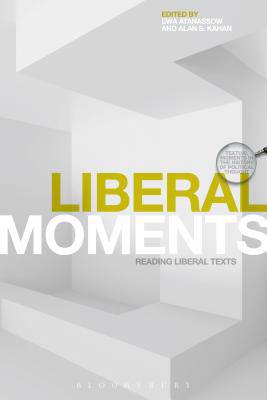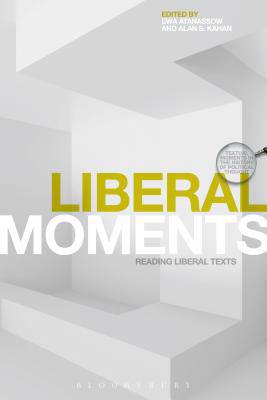
Bedankt voor het vertrouwen het afgelopen jaar! Om jou te bedanken bieden we GRATIS verzending (in België) aan op alles gedurende de hele maand januari.
- Afhalen na 1 uur in een winkel met voorraad
- In januari gratis thuislevering in België
- Ruim aanbod met 7 miljoen producten
Bedankt voor het vertrouwen het afgelopen jaar! Om jou te bedanken bieden we GRATIS verzending (in België) aan op alles gedurende de hele maand januari.
- Afhalen na 1 uur in een winkel met voorraad
- In januari gratis thuislevering in België
- Ruim aanbod met 7 miljoen producten
Zoeken
Liberal Moments
Reading Liberal Texts
€ 203,95
+ 407 punten
Omschrijving
Liberalism today has perhaps more supporters and adversaries than any other political movement. This volume traces liberalism's global ascent through essays about some of the thinkers and actors who participated in its rise and spread. The essays included here present for the first time in one place the geographic and ideological diversity of liberal thought and practice as it developed since the eighteenth century. By exploring thinkers as diverse as Montesquieu, Abraham Lincoln, Jacob Burckhardt, Khayr al-Din, Hu Shih, John Rawls, and Czeslaw Milosz, this volume contributes toward a better understanding of liberalisms past and present.
Each chapter opens with a critical passage from the author under consideration and explores the author's significance for liberalism. By facilitating a direct encounter with influential authors and texts, the volume serves as an introduction both to the multiple dimensions of liberalism and to reading texts in political thought. By engaging with particular liberal moments, the essays allow readers to create and explore conversations among liberalisms across time and space. It thus encourages a broader and more nuanced understanding of the nature and history of liberalism. Stimulating, accessible and interdisciplinary, Liberal Moments will appeal to students and scholars in the history of political thought, intellectual history and beyond.
Each chapter opens with a critical passage from the author under consideration and explores the author's significance for liberalism. By facilitating a direct encounter with influential authors and texts, the volume serves as an introduction both to the multiple dimensions of liberalism and to reading texts in political thought. By engaging with particular liberal moments, the essays allow readers to create and explore conversations among liberalisms across time and space. It thus encourages a broader and more nuanced understanding of the nature and history of liberalism. Stimulating, accessible and interdisciplinary, Liberal Moments will appeal to students and scholars in the history of political thought, intellectual history and beyond.
Specificaties
Betrokkenen
- Uitgeverij:
Inhoud
- Aantal bladzijden:
- 240
- Taal:
- Engels
- Reeks:
Eigenschappen
- Productcode (EAN):
- 9781474251044
- Verschijningsdatum:
- 7/09/2017
- Uitvoering:
- Hardcover
- Formaat:
- Genaaid
- Afmetingen:
- 156 mm x 234 mm
- Gewicht:
- 512 g

Alleen bij Standaard Boekhandel
+ 407 punten op je klantenkaart van Standaard Boekhandel
Beoordelingen
We publiceren alleen reviews die voldoen aan de voorwaarden voor reviews. Bekijk onze voorwaarden voor reviews.








